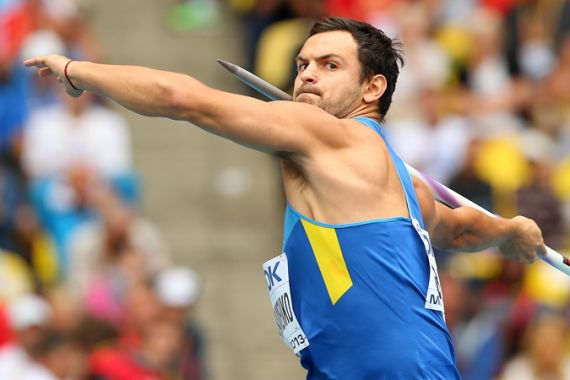Seven athletes fail doping tests
Competitors at last month’s Moscow world championships sanctioned or suspended by governing body for failing drug tests.

Seven athletes, including one finalist, tested positive for doping at August’s World Athletics Championships in Moscow, track and field’s world governing body, the IAAF, announced on Friday.
The IAAF said it took a total of 1,919 blood samples and carried out 538 urine test during the competition and 132 during the pre-competition period.
Keep reading
list of 4 itemsBritish runner completes challenge to run length of Africa
Nagham Abu Samra: Palestine karate champion, victim of Israel’s war on Gaza
Funeral held for world marathon record holder Kelvin Kiptum
Seven athletes failed urine tests, the IAAF confirmed, with just one having appeared in a final: Ukrainian Roman Avramenko, who finished fifth in the men’s javelin, but tested positive for steroid dehydrochloromethyltestosterone.
The six others were named as Afghan Massoud Azizi (men’s 100m; nandrolone metabolites), Ukrainian Elyzaveta Bryzgina (women’s 200m; drostanolone), Kazakhstan’s Ayman Kozhakhmetova (women’s 20km walk; exogenous testosterone + EPO), Iran’s Ebrahim Rahimian (men’s 20km walk; EPO), Turkmenistan’s Yelena Ryabova (women’s 200m; dehydrochloromethyltestosterone); and Guatemalan Jeremias Saloj (men’s marathon; EPO).
The seven athletes have either already been sanctioned or provisionally suspended, the IAAF said.
“I am delighted that with the assistance of our partners the IAAF has been able to carry out such a comprehensive anti-doping testing programme in Moscow,” said IAAF president Lamine Diack.
“The specialised analyses and the blood samples taken in connection with the Athlete Biological Passport emphasise the IAAF’s firm commitment and resolve to use the most sophisticated methods at our disposal in the fight against cheating in sport.”
All urine samples collected in Moscow are to be transferred to long-term storage facilities provided by the Lausanne laboratory for eventual re-analyses at a later stage.
The 1,919 blood samples taken during the worlds were analysed daily in the WADA-accredited laboratory in Moscow for haematological screening.
“The corresponding serum samples have been transferred to the Lausanne laboratory for further analyses of various blood bio markers which are now ongoing,” IAAF said.